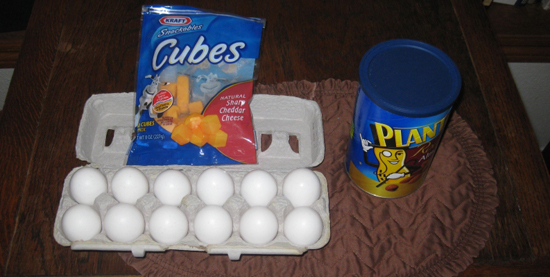Is Your Mineral Intake Adequate?
Eat an Organic, Balanced Diet and Supplement when Needed
Copyright © Vicki Riviera All Rights Reserved; content may not be copied, rewritten, or republished without written permission; Posted January 2, 2013


Do you eat organic food, take a vitamin supplement, but still feel something is amiss? The answer may lie in your mineral intake, or, the lack of it.
The truth is that mineral deficiencies are quite common and can be connected to many of our modern health issues. They are especially important if children because their bodies are still developing.
You may have assumed that since minerals are in so many foods you are in the safe zone. Not so; in fact strict vegans and even borderline vegetarians may be missing out on important trace minerals and the ones in your multi-vitamin may not be as upper shelf as you think.There are other factors in play as well. Research has also connected deficiencies with many prescription drugs including antibiotics, aspirin, chelating agents, anticonvulsants and antidiabetic oral medications.
Let’s look at some important dietary requirements.
Calcium for Strong Bones
According to kidshealth.org, Calcium is the number one macromineral for bone growth and maintenance. It helps build strong bones in children and prevent osteoporosis in women later in life. It also helps build strong, healthy teeth.
Which foods are rich in calcium?- Dairy products, such as milk, cheese, and yogurt
- Calcium-fortified foods such as orange juice, cereals and, crackers
- Canned salmon, anchovies, and sardines with bones
- Green leafy vegetables like kale, Swiss chard, and broccoli
Potassium for the Nervous System
Potassium keeps your muscles and nervous system working properly and minimizes the possibility of cramps.
Your blood and bodily tissues, including muscles, contain water? Potassium helps make sure the amount of water is just right between cells and body fluids. It performs a balancing act. Find it in:- Potatoes and sweet potatoes, with skin intact
- Legumes, like beans, split peas, and lentils
- Green vegetables, like spinach and broccoli
- Bananas and tomatoes
The Strength of Iron
Your body uses iron to transport oxygen from your lungs to the rest of your body. This is critical because the body needs oxygen to maintain life.
It also helps with the formation of hemoglobin, which is the component in your red blood cells that transports oxygen throughout the body. Get your iron in:- Dried fruits such as apricots and raisins
- Cuts of meat, particularly red meat like liver or beef
- Whole and enriched grains such as quinoa, wheat, and oats
- Eggs
- Cooking in cast iron cookware
Zinc
This mineral boosts your immune system. This is your system that fights off common illnesses and infections. It is also involved cellular growth and assists in healing wounds, such as cuts. It is found in:- Legumes, like peanuts, split peas, as well as lentils
- Meats such as beef, pork, and chicken
- Most nuts, including cashews, pecans, walnuts, and almonds
Recommendations for Good Health
Eventually, all the mineral availability mentioned above originated in the earth and seas. Research indicates that mineral depletion in the soil was about 85 percent in the period from 1900 to 1940!
Adding natural soil amendments in organic programs has made some progress in bringing soil health back from the brink of the abyss but chemical techniques are still applied to most of what you find in your local grocery store.
Here are some ways to maximize your health goals:
- Consume fresh, local fruits and veggies. They taste better and they support your local economy which impacts you directly. Try farmer’s markets. They are also fresher minimizing the time that allows vital nutrients to disappear.
- Take your supplements. If you do have a mineral deficiency, it’s a smart move to take a high quality nutritional supplement even as you adjust your diet to make needed changes.
This can reverse the onset of serious conditions and it works quicker than diet alone. Always shop for food-based mineral supplements.
- Be certain that you are consuming healthy fats such as olive and coconut oil. Get those omega-3s from flax, hemp, and chia seeds. They will provide you with the nutrients that your body needs.
Avocados also provide healthy fats. Finally, bear in mind that saturated (bad) fats can have the opposite effect; read the label.
- Buy Choose organic produce and free range meat whenever possible. You will boost your health when you avoid foods treated with toxic pesticides and chemicals.
- Maintain a healthy weight. Extra weight puts stress and strain on your body and impacts your overall health. Obesity is even linked to conditions like diabetes. The South Beach Diet is a great method to drop the pounds while eating healthy.
References:
- Arthur Agatston, M.D. (2011) The South Beach Diet. Rodale Books
- kidshealth.org
Website copyright © 2013 Kelly Smith; All rights reserved; content may not be copied, rewritten, or republished without written permission; Webmaster’s Google profile

